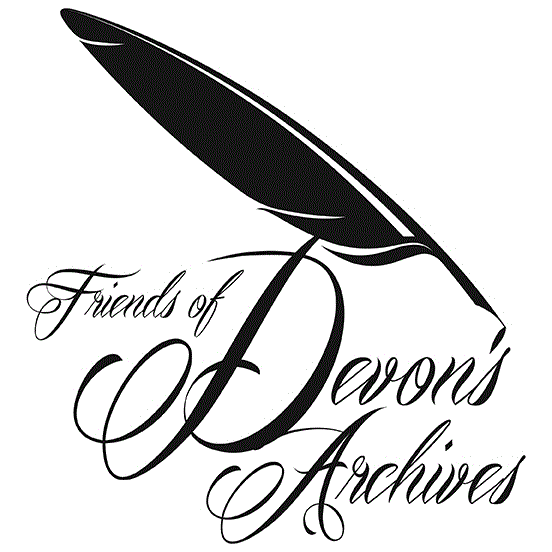Some notes about Drewsteignton during the Eighteenth Century
By Paul Greener
The Overseers and their accounts14
Four overseers were appointed each year representing properties which were on a rota of about 23 years. Then they drew lots to decide who would be responsible in each three month period for collecting the Poor Rate and administering the fund. Naturally this was an unpopular task, especially from Michaelmas to Easter, and even more so if some of the overseers were unable to write and keep accounts. In such a year one man kept the communal account for the whole twelve months, but in others, each man wrote a separate one for his own quarter. Once appointed, the overseers were responsible to the churchwarden for looking after all paupers in the parish and removing any who did not belong to it which incurred legal costs. They also administered a fund of so called 'stock money', being lent out to reputable individuals at 5% per annum, which interest was given to the most deserving poor. Yet another task was the arranging of apprenticeships, paying for the indentures of pauper children, and keeping records.
A fixed Poor Rate was levied on individual properties, amounting in all to £1 11s 6d, and collected however many times it became necessary to maintain a cash flow. This income was augmented occasionally from other sources especially for extraordinary expenditure such as house building.
Regular monthly payments were given to the poor as outdoor relief in their own homes and until 1731, when available records end, about £20 per year was spent to relieve twenty or so paupers according to their needs. Less predictable were legal costs for a variety of reasons, especially in connection with settlements, and the expenses of Care House inmates for clothes, medical attention and burial.
An unusual entry appears at the end of the 1708 accounts and is dated April 20th:
An account of what William Ponsford made of James Bremblecombe's goods.
| John Dicker for a pare of pott hangings | 2s. 4d |
| Eliza Beere for a barrell | 1s.10d |
| Jone Seaward for a brass crock @ 8d per pounde being 24 lb | 16s.4d |
| Eliza Clark for a Littell crock | 3s.1 ½ d |
| John Floud for a Trunk | 4s. 6d |
| Eliza Clark for a Chest | 9s. 0d |
| William Ponsford for a frying pann | 1s. 2d |
| Mordecay Gill for a Chair | 2s. 0d |
| Jone Seaward for a bedsteed | 10s. 0d |
| Mar. Rowe for 2 Stools | 10d |
| Thoma. Sweet for a Feend [not a costly item whatever it was] | 2d |
| Jone Seaward for a pot crook | 1s. 3d |
| An Tucker for a Stoole | 1 ½ d |
| Eliza Dowling for 4 puter Dishes | 6s .10d |
| Eliza Weeks for a Bible | 2s. 0d |
| William Wills for a Kittell [a deep cooking pot] | 4s. 2d |
| Mrs. Pendarviss for a Kittell [the Rector's wife] | 3s. 2d |
| John Dicker for a bedsteed | 14s. 0d |
| John Smale for an Amery [a meat safe] | 11s. 0d |
| Thoma. Sweet for a Skillett [a small cooking pot with handle and legs] | 1s. 0d |
| John Smith for a Tub and buckett | 1s. 10d |
| John Fey for a Griddle | 7d |
| Tho. Hill for a feather boulster and pillow | 9s. 11d |
| John Smith for a blankett | 8s. 0d |
| Mrs. Pendarvis for a littell old Keeve [ a sieve] | 1s.2d |
| John Dicker for a Coverlet | 5s. 6d |
| Jane Clark for an old blankett | 1s. 0d |
| Abra. Underhill for a brand iron [supports for each end of a griddle] | 8d |
| William Ponsford for 2 wadges | 1s. 4d |
| Abra. Underhill for a dish rack | 10d |
| Thos. Hill for a stoole and Tableboard | 11s. 10d |
| And for a Pothanging | 1s. 4d |
| John Symons for old Iron | 8d |
| William Ponsford for a feather bedty, boulster and pillow @ 4d per lb It being 48lb | £1. 2s. 0d |
| And for 2 old coverlets and Blankett | 8s. 6d |
| And for an old Ferkin and Zealop [seal up ? = bung] | 10d |
| And for a Standerd [frame for supporting barrels] | 2s. 0d |
| £8. 12. 10d |
The interest in this list of household goods is not only that it appears to be a sale by auction, unlike the usual post mortem inventories which were valued by neighbours, but, as it turns out, James Bremblecombe was still alive. He had been overseer for Drewston in 1679, and, judging from his possessions was farming it, but all the subsequent entries in the same account suggest that he had since lost his senses. The overseers took his case to Chancery, there is mention of interogatories and affidavits, six lawyers are named and total costs came to £40 13s 9d. A horse was hired so that Bremblecombe could ride to Exeter and he was given 1s as well as a dinner. Finally a new lease was drawn up for Drewston by the overseers, although there is no record of it ever having been in their possession, and curiously no mention is made of farm live and deadstock. A similar case occurred in Colebrook parish, possibly another 'chancery lunatic', (DHC, 541/A
PO), dated 1711.
Continue to Appendix Return to previous
- DHC, 2165/A PO1 & PO2. Overseers lists and by year for individual accounts. [back]

